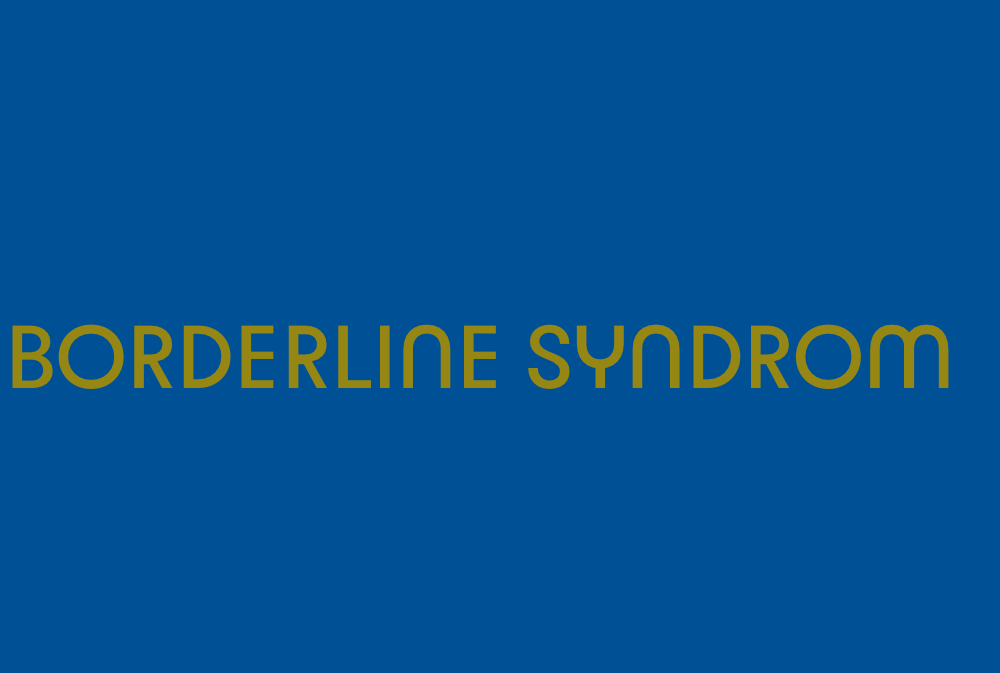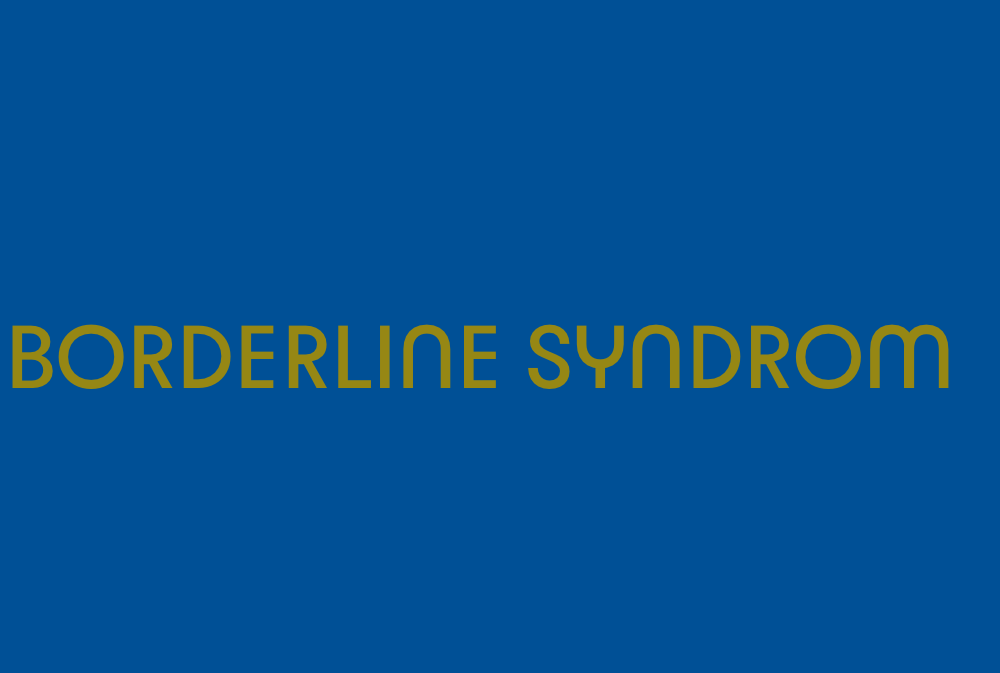Managing or Understanding BPD
How to Deal With a Daughter With Borderline Personality Disorder
Journey into understanding and supporting a daughter with Borderline Personality Disorder, unraveling key insights for transformative relationships.

Dealing with a daughter who shows intense emotions and behaves impulsively can be a daunting task. It’s often hard to figure out the best way to manage these moments without feeling overwhelmed or unsure.
However, by gaining a deeper understanding of Borderline Personality Disorder (BPD) and implementing effective strategies, parents can play a crucial role in their daughter’s journey towards healing and stability.
By exploring the nuances of supporting a loved one with BPD, we can uncover valuable insights that pave the way for a more harmonious and nurturing relationship, ultimately leading to a brighter future for both parent and child.
Key Takeaways
- Educate oneself about BPD to provide support and care for a daughter.
- Practice self-care and set boundaries to manage stress and abusive behavior.
- Use empathetic communication and validation to foster open and honest communication.
- Prioritize daughter’s treatment, maintain boundaries, and prioritize own mental health.
Understanding Borderline Personality Disorder in Daughters
In understanding Borderline Personality Disorder in daughters, it’s crucial to educate ourselves about the complexities of this condition to provide the best support and care. Borderline Personality Disorder (BPD) can present unique challenges within the family dynamic, impacting not only the individual with the disorder but also those closest to them. Seeking help and guidance is essential in navigating the complexities of BPD, particularly when co-morbid conditions are present. By collaborating with a treatment team specializing in BPD and co-morbid conditions, families can access comprehensive care that addresses the individual’s needs holistically.
Educating ourselves about BPD enables us to better comprehend our daughter’s experiences and challenges, fostering empathy and understanding within the family unit. Setting clear and consistent boundaries with our daughter is crucial for maintaining a healthy environment while supporting her treatment journey. Encouraging participation in evidence-based therapies, such as dialectical behavior therapy (DBT), can be instrumental in managing BPD symptoms effectively.
Self-Care Strategies for Parents

To promote the well-being of parents with a child diagnosed with Borderline Personality Disorder, implementing effective self-care strategies is paramount. When dealing with a daughter with BPD, it’s crucial to prioritize your mental health and well-being. Here are some self-care strategies for parents:
- Practice self-care: Engage in activities that bring you joy and relaxation.
- Set boundaries: Show love by holding these boundaries and have a zero-tolerance policy for abusive behavior.
- Manage stress: Set realistic expectations, seek support from friends, family, and support groups, and prioritize your own well-being by seeking therapy or counseling.
- Educate yourself: Learn about BPD and effective parenting strategies to better understand and support your child.
- Communicate effectively: Focus on emotions, validate your daughter’s feelings, and help her recognize and problem-solve her emotions.
Building Healthy Communication and Validation
As parents of a daughter with Borderline Personality Disorder, nurturing healthy communication and validation becomes a cornerstone in fostering understanding and emotional support. Building healthy communication starts with active listening and validating your daughter’s emotions.
It’s crucial to use empathetic and non-judgmental language when communicating with her to create a safe space for open dialogue. Avoid invalidating her feelings or dismissing her experiences, as this can further escalate her emotions.
Help her recognize and problem-solve her emotions by offering support and guidance. Foster open and honest communication, allowing her to express herself without fear of judgment. Remember to use ‘I’ statements to express your own feelings and concerns, rather than blaming her.
Balancing Love and Boundaries

Balancing love and boundaries requires a delicate yet firm approach when supporting a child with borderline personality disorder. It’s crucial to find a balance between showing love for your daughter and establishing clear boundaries to promote her well-being and recovery.
Here are key points to consider:
- Prioritize Your Daughter’s Treatment: Seek professional guidance and support to learn effective strategies for managing borderline personality disorder.
- Maintain Consistent Communication: Openly discuss expectations and limits with your daughter to help her understand the importance of boundaries.
- Set Clear Boundaries: Enforce realistic and enforceable boundaries to maintain a healthy relationship and protect both yourself and your daughter.
- Practice Self-Care: Prioritize your own mental health and happiness while supporting your daughter’s treatment journey.
- Zero Tolerance for Abuse: Establish a strict boundary against any form of abusive behavior to safeguard both yourself and your daughter.
Balancing love and boundaries is vital in navigating the complexities of borderline personality disorder and fostering a supportive environment for your daughter’s growth and healing.
Seeking Professional Support for Daughters With BPD
How can seeking professional support benefit daughters with Borderline Personality Disorder (BPD)?
When daughters are diagnosed with BPD, it can feel overwhelming for both them and their families. However, seeking professional help is crucial in navigating this complex condition.
Understanding treatment options, such as Dialectical Behavior Therapy (DBT), and finding therapists specialized in BPD can make a significant difference in your daughter’s journey towards healing.
Residential treatment centers that focus on Borderline Personality Disorders can also provide a structured environment for intensive therapy.
Frequently Asked Questions
How Do I Deal With My Adult Daughter With Bpd?
Dealing with a loved one who’s Borderline Personality Disorder can be challenging. It’s crucial to approach this situation with empathy and understanding. Setting clear boundaries while showing love is key.
Seeking professional help for both your daughter and yourself is important. Educating yourself about BPD and practicing effective communication skills can help foster a positive relationship. Remember, taking care of your own mental and emotional well-being is equally important in navigating this journey.
What Triggers a Person With Borderline Personality Disorder?
We understand the importance of recognizing common triggers for individuals with BPD, such as abandonment, rejection, criticism, and traumatic experiences. By creating a safe environment and promoting open communication, we can help develop coping strategies.
Educating ourselves about BPD and working with a therapist to personalize a management plan is crucial. Understanding these triggers is key to supporting individuals effectively and fostering a supportive atmosphere for their well-being.
What Not to Say to Someone With Borderline Personality Disorder?
When interacting with individuals with borderline personality disorder, it’s crucial to avoid statements that invalidate their emotions or experiences, such as ‘you’re overreacting’ or ‘you’re just being dramatic.
Blaming them for their condition or assuming they’re intentionally causing their own problems should also be steered clear of.
Labeling them as ‘crazy’ or telling them to ‘just get over it’ is harmful.
Why Did My Daughter Get Bpd?
We ponder the origins of BPD, understanding its intricate web of genetic predisposition, environmental influences, and potential trauma.
BPD isn’t a product of ill intent but a manifestation of profound inner turmoil.
Unraveling the threads of our daughter’s pain can foster empathy and guide her path to healing.
Conclusion
In conclusion, navigating life with a daughter who’s Borderline Personality Disorder can feel like riding a rollercoaster in a hurricane.
It’s important to educate yourself, set boundaries, communicate effectively, and seek professional support.
Remember, your love and understanding can make a world of difference in her recovery journey.
Stay strong, stay informed, and never underestimate the power of your support.
Isla’s writings reflect a profound connection to the BPD community, offering solace and understanding to those who feel isolated by their struggles. Her articles explore the nuances of relationships, healing, and self-discovery, all through the lens of BPD. Isla’s compassionate approach to storytelling encourages readers to embrace their journey with hope and resilience.
Managing or Understanding BPD
Borderlinesyndrom.net is a Comprehensive Resource Dedicated to Exploring the Complexities of Borderline Personality Disorder (BPD)

Borderlinesyndrom.net serves as an extensive guide aimed at uncovering the intricacies of Borderline Personality Disorder (BPD). This online resource explores numerous facets of BPD, striving to offer enlightenment, comprehension, and assistance to those who are dealing with the condition, including their family and friends. Below is a summary of the topics and subjects addressed on the website:
Key Themes and Topics
- Sex and Self-Harm: The site addresses the intricate relationship between sex, self-harm, and BPD, exploring why these behaviors may be more prevalent among individuals with the disorder[1].
- Life Expectancy: It discusses the concerning statistic that individuals with BPD may have a reduced life expectancy of up to 20 years, seeking to understand the factors contributing to this disparity[1].
- Types of BPD: Borderlinesyndrom.net provides information on the different types of BPD, offering guidance on how to recognize and understand the variations within the disorder[1].
- Divorcing a Spouse with BPD: The website explores the challenges of divorcing someone with BPD, offering advice on navigating the emotional complexities and legal hurdles[1].
- BPD and Narcissism: It also touches on the specific challenges of dealing with a spouse who has traits of both BPD and narcissism, suggesting strategies for coping and moving forward[1].
- Mirroring and Identity: The phenomenon of BPD mirroring is examined, revealing how individuals with BPD may mirror the identities and behaviors of those around them, impacting relationships and self-perception[1].
- Forgetfulness: This article explores how forgetfulness can be a symptom of BPD, affecting daily life and personal relationships[1].
- Dreams and the Subconscious: The site delves into the role of dreams and the subconscious in BPD, suggesting a deeper connection between the disorder and one’s inner psychological landscape[1].
- The Chameleon Effect: This concept is discussed in the context of BPD, highlighting how individuals with the disorder may adapt their personalities in different social situations, affecting authenticity and self-identity[1].
- Overthinking: The link between BPD and overthinking is explored, shedding light on the tendency of individuals with BPD to engage in excessive rumination and its impact on mental health[1].
- Healing After a BPD Relationship: Finally, the website offers guidance on healing and recovery after the end of a relationship with someone who has BPD, focusing on self-care and personal growth[1].
In summary, Borderlinesyndrom.net is a valuable resource for anyone seeking to understand the multifaceted nature of Borderline Personality Disorder. Through its in-depth articles and discussions, the website aims to unravel the complexities of BPD, offering support and knowledge to those affected by the disorder[1].
Citations:
[1] https://borderlinesyndrom.net
Paul is a storyteller at heart, sharing narratives illuminating the lived experiences of those with BPD. His work encompasses a range of topics, from personal journeys to the challenges and triumphs faced by individuals navigating life with BPD. Paul’s authentic and engaging writing style invites readers into the world of BPD, promoting awareness and empathy.
Managing or Understanding BPD
How to Spot the 4 Types of Borderline Personality Disorder
Baffled by the different types of Borderline Personality Disorder? Unravel the mystery and learn how to spot them with ease!

Have you ever wondered about the methods to differentiate the four types of Borderline Personality Disorder (BPD)?
Understanding the nuances of Discouraged, Impulsive, Petulant, and Self-Destructive Borderline can be a complex task.
Each subtype presents its unique set of challenges and characteristics that require careful observation.
By recognizing the distinct traits associated with each type, we can gain valuable insights into the behaviors and thought patterns of individuals struggling with BPD.
Key Takeaways
- Different types of Borderline Personality Disorder exhibit distinct patterns of behavior.
- Borderline personalities may struggle with self-harm, impulsivity, and fear of abandonment.
- Seeking therapy and medication can be effective in treating Borderline Personality Disorder.
- Understanding the underlying issues contributing to self-destructive behaviors is crucial for treatment.
Discouraged Borderline Personality
Individuals with Discouraged Borderline Personality display a pattern of avoidance, dependence on others, fear of abandonment, difficulty expressing anger, and tendencies towards self-harm.
This subtype of Borderline Personality Disorder (BPD) is characterized by a deep-seated fear of rejection and abandonment, leading to a strong reliance on relationships to validate their self-worth. Those diagnosed with discouraged BPD often internalize their distress, making it challenging for others to recognize their struggles.
Specific symptoms of discouraged BPD include chronic feelings of emptiness, low self-esteem, and a pervasive sense of hopelessness. This subtype may also struggle with setting and achieving goals, engaging in self-sabotaging behaviors, and isolating themselves from others.
The causes of BPD, including the discouraged type, are linked to neuro-biologically based vulnerabilities that interact with environmental factors. Seeking therapy from a qualified mental health professional is essential for accurately diagnosing and effectively treating individuals with discouraged Borderline Personality.
Impulsive Borderline Personality

Impulsive Borderline Personality is characterized by a tendency towards engaging in risky and self-destructive behaviors without considering the potential consequences. Individuals with this subtype of BPD may exhibit energetic and charismatic traits while struggling with emotional regulation and intense emotions. Examples of impulsive behaviors include aggressive behaviors like physical fights and yelling fits, bingeing behaviors such as overspending and binge eating, and self-destructive actions like substance abuse and risky sexual practices. These behaviors are common in individuals with Impulsive BPD, one of the types of Borderline Personality Disorder, and can significantly impact their daily functioning and relationships. Treatment for Impulsive BPD often involves a combination of therapy, medication, and developing healthier coping mechanisms to manage impulsive behaviors effectively.
Impulsive Borderline Personality Energetic Charismatic Detached Motivating Flirtatious
Petulant Borderline Personality
Swinging between anger and sadness, Petulant Borderline Personality is characterized by an unhealthy desire for control, manipulative behavior, and dissatisfaction in relationships.
Individuals with this subtype of Borderline Personality Disorder (BPD) often exhibit the following symptoms:
- Unpredictable and irritable behavior, with a tendency towards passive-aggressive actions and self-harming behaviors.
- Strong need for validation and attention, leading to substance abuse and risky behaviors.
- Difficulty in maintaining stable relationships due to feelings of being unloved or unworthy.
People with petulant BPD may easily feel offended, react with anger or resentment, and struggle with managing their emotions.
Seeking professional help is essential for an accurate diagnosis and effective treatment of Petulant Borderline Personality. Therapy, support groups, and appropriate interventions can aid individuals with petulant BPD in managing their symptoms and improving their overall well-being.
Self-Destructive Borderline Personality

Characterized by self-hatred, bitterness, and engaging in self-destructive behaviors, Self-Destructive Borderline Personality is a subtype of Borderline Personality Disorder.
Individuals with self-destructive BPD often exhibit impulsive types of behavior such as self-harm, substance abuse, and risky activities. These behaviors can serve as maladaptive coping mechanisms to deal with intense emotions and a fear of abandonment.
Symptoms of self-destructive BPD may include decreased desire to sleep, increased energy levels, and feelings of euphoria, resembling manic episodes seen in bipolar disorder. Seeking help from a qualified mental health professional is crucial for accurate diagnosis and treatment.
Individuals diagnosed with borderline personality disorder, particularly the self-destructive subtype, may struggle with regulating their emotions, leading to intense anger, sadness, or feelings of emptiness.
Treatment typically involves therapy, medication, and developing healthy coping strategies to address the underlying issues contributing to the self-destructive behaviors.
Frequently Asked Questions
What Are the 4 Subtypes of Bpd?
The four subtypes of Borderline Personality Disorder (BPD) include Discouraged BPD, Impulsive BPD, Petulant BPD, and Self-Destructive BPD. Each subtype exhibits unique characteristics and symptoms.
Discouraged BPD is marked by fear of abandonment and self-blame.
Impulsive BPD is characterized by impulsive behaviors and aggression.
Petulant BPD involves chronic anger and a need for validation.
Self-Destructive BPD displays self-hatred and self-destructive tendencies.
Understanding these distinctions is crucial for effective treatment.
How Do I Know What Type of BPD I Have?
To identify the specific type of borderline personality disorder (BPD), we observe distinctive behavioral patterns and emotional responses. Understanding these distinctions can guide tailored treatment approaches.
Therapy, medication, and support groups are common methods for managing BPD. Ongoing support and follow-up care play vital roles in maintaining progress.
Recognizing these patterns enables us to address the unique challenges associated with each type of BPD effectively.
What Are the 4 Areas of Borderline Personality Disorder?
The four main areas of Borderline Personality Disorder (BPD) encompass:
- Emotional dysregulation
- Unstable relationships
- Impulsivity
- An unsteady self-image
These core features often manifest in:
- Intense mood swings
- Fear of abandonment
- Risky behaviors
- Identity disturbances
Understanding these fundamental aspects can aid in recognizing and addressing the complexities of BPD to guide effective treatment strategies.
What Does a BPD Meltdown Look Like?
When experiencing a BPD meltdown, we display extreme emotional reactions like intense anger, sadness, or anxiety. This may lead to impulsive actions, such as self-harm or substance abuse. Feeling overwhelmed and struggling to regulate emotions is common.
Recognizing signs like rapid mood swings and intense fear of abandonment is crucial. Seeking professional help and support is vital during these episodes to ensure safety and develop effective coping strategies.
Conclusion
In conclusion, identifying the four types of Borderline Personality Disorder is essential for understanding the unique characteristics and behaviors associated with each subtype.
By recognizing the distinct traits of Discouraged, Impulsive, Petulant, and Self-Destructive Borderline personalities, individuals can seek appropriate treatment and support.
Remember, recognizing these patterns is like finding a needle in a haystack, but with the right tools and guidance, it can be done effectively.
Consulting with a mental health professional is key in navigating the complexities of BPD.
Isla’s writings reflect a profound connection to the BPD community, offering solace and understanding to those who feel isolated by their struggles. Her articles explore the nuances of relationships, healing, and self-discovery, all through the lens of BPD. Isla’s compassionate approach to storytelling encourages readers to embrace their journey with hope and resilience.
Managing or Understanding BPD
How to Communicate With Someone Who Has Borderline Personality Disorder
Intrigued by the complexities of communication with individuals with Borderline Personality Disorder? Discover effective strategies for fostering understanding and support in this insightful guide.

Having a conversation with individuals who have Borderline Personality Disorder could be compared to engaging in a nuanced dance, where empathy and understanding guide each step.
As we extend our support to those with BPD, finding the right rhythm in our communication can be a challenge. However, by employing specific techniques and fostering a safe space for dialogue, we can enhance our connections and offer meaningful support to those navigating the complexities of this disorder.
Key Takeaways
- Practice empathy and validate emotions when communicating with someone with BPD.
- Set clear boundaries with compassion and consistency to maintain healthy communication.
- Seek professional help and encourage therapy or medication for effective treatment.
- Offer patience, support, and reassurance to navigate emotions and promote healing and stability.
Understanding Borderline Personality Disorder Communication
When communicating with someone who has Borderline Personality Disorder, it’s essential to be patient and understanding. Individuals with BPD often struggle with intense emotions, fear of abandonment, and difficulty regulating their feelings. Acknowledging their emotions and validating their experiences before addressing any issues can help establish trust and create a safe space for communication.
It’s crucial to practice empathetic listening, showing genuine sympathy, and separating facts from feelings when engaging with a loved one with BPD.
Setting clear boundaries is also important in maintaining a healthy and respectful dialogue. Constructive criticism should be offered in a compassionate manner, focusing on solutions rather than blame.
Seeking professional help, such as Dialectical Behavior Therapy (DBT), can provide additional strategies for effective communication and support for both the individual with BPD and their loved ones.
Empathetic Listening Techniques for BPD

Understanding the importance of empathetic listening techniques is crucial when communicating with individuals who have Borderline Personality Disorder. To effectively engage with someone struggling with BPD, it’s vital to:
- Practice active listening by giving your full attention and showing genuine interest in what the person with BPD is saying.
- Validate their emotions and experiences, letting them know that you understand and accept their feelings without judgment.
- Reflect back their feelings and thoughts to show that you’re truly listening and understanding their perspective.
These techniques can help individuals with BPD feel heard and supported, fostering a sense of trust in the communication process.
It’s essential to approach interactions with empathy and compassion, providing a safe space for them to express themselves. Encouraging them to seek treatment, manage their symptoms, and offering resources such as a qualified therapist or support group can aid in their journey towards healing.
Setting Healthy Communication Boundaries
To establish healthy communication boundaries when interacting with individuals who have Borderline Personality Disorder, it’s essential to clearly express our needs and limits while maintaining empathy and understanding. Setting healthy communication boundaries is crucial in fostering a positive and supportive relationship with someone diagnosed with BPD.
Words must match your actions to ensure consistency and trust. Ambiguous statements and behaviors can lead to confusion and potentially escalate the situation. Clear boundaries can provide structure and help someone with BPD feel secure in their interactions. It’s important to avoid enabling behaviors that may reinforce negative patterns.
If you find it challenging to set boundaries on your own, seek professional guidance to navigate this process effectively. By establishing and maintaining healthy boundaries, you create a safe space for both parties to communicate openly and respectfully, ultimately contributing to more constructive and fulfilling interactions.
Strategies for Supporting BPD Treatment

To best support someone undergoing treatment for Borderline Personality Disorder, it’s crucial to educate ourselves about BPD to better grasp the challenges associated with the condition. Understanding the nuances of mental health and therapy for Borderline Personality Disorder can significantly aid in communicating effectively and providing the necessary support for someone diagnosed with BPD.
Here are three essential strategies for supporting someone with BPD in their treatment journey:
- Offer unwavering support and encouragement to show that they aren’t alone in their struggles.
- Help them establish and maintain healthy boundaries to foster stability and promote self-care.
- Encourage them to seek professional help, whether through therapy or medication, and consider accompanying them to appointments for added support.
Patience and Support in Communication
As we continue to support individuals undergoing treatment for Borderline Personality Disorder (BPD), maintaining patience and offering unwavering support in our communication plays a pivotal role in their journey towards healing and stability.
Communicating with someone with BPD requires a deep understanding of the challenges they face, such as intense emotional fluctuations and self-destructive behaviors. In such moments, patience becomes a powerful tool, allowing us to remain calm and composed even when faced with difficult situations.
Support in communication goes hand in hand with patience. It involves actively listening, validating their feelings, and providing reassurance during moments of distress. By offering consistent support, we create a safe space for individuals with BPD to express themselves without fear of judgment.
When engaging in conversations with someone with BPD, it’s essential to remember that therapy and treatment play a crucial role in their journey. Encouraging them to seek professional help and reinforcing the importance of therapy can be incredibly beneficial.
Ultimately, by practicing patience and unwavering support in our communication, we can help individuals with BPD navigate their emotions and work towards a path of healing and stability.
Frequently Asked Questions
What Not to Say to Someone With Borderline Personality Disorder?
When talking to someone with borderline personality disorder, it’s essential to avoid statements that may invalidate their feelings or make them feel misunderstood. Saying things like ‘You’re just being dramatic’ or ‘You’re overreacting’ can be harmful and dismissive.
It’s important to approach conversations with empathy and understanding, acknowledging their emotions and experiences without judgment. Effective communication involves listening actively and validating their feelings, fostering a supportive and respectful dialogue.
How to Deal With a Person With Borderline Personality Disorder?
Dealing with someone with borderline personality disorder requires patience and empathy. We must separate facts from feelings, validate their emotions, and listen actively.
When emotions escalate, it’s crucial to seek distractions to help them calm down. Understanding their struggles and offering support can make a significant difference in our interactions.
What to Do When Someone With BPD Is Mad at You?
When someone with BPD is mad at us, it’s crucial to stay calm and validate their emotions while also giving them space to cool off. Clear and assertive communication, with the setting of boundaries if needed, can be beneficial.
Prioritizing both their needs and our well-being is key, offering support and understanding in a constructive manner.
What Triggers a Person With Borderline Personality Disorder?
When someone has Borderline Personality Disorder, triggers like abandonment, criticism, rejection, feeling out of control, and unstable relationships can provoke intense emotional reactions. These triggers can lead to fear, anger, worthlessness, and despair. Understanding these triggers is crucial in providing support and fostering healthy communication.
It’s important to approach these situations with empathy and patience, acknowledging the impact these triggers can have on individuals with BPD.
Conclusion
In conclusion, mastering the art of communication with someone who’s Borderline Personality Disorder is like unlocking a secret superpower.
By practicing empathy, setting boundaries, and offering unwavering support, you can become a true communication superhero.
Remember, patience and understanding are your trusty sidekicks on this journey.
Together, you can navigate the challenges of BPD communication with grace and compassion.
So, suit up and get ready to conquer the world of effective communication!
Isla’s writings reflect a profound connection to the BPD community, offering solace and understanding to those who feel isolated by their struggles. Her articles explore the nuances of relationships, healing, and self-discovery, all through the lens of BPD. Isla’s compassionate approach to storytelling encourages readers to embrace their journey with hope and resilience.
-

 Divorcing a Partner with Borderline3 weeks ago
Divorcing a Partner with Borderline3 weeks agoUnderstanding Borderline Personality in Divorce
-

 Borderline Personality3 weeks ago
Borderline Personality3 weeks agoStories of Hope: Triumph in BPD Relationships
-

 Managing or Understanding BPD3 weeks ago
Managing or Understanding BPD3 weeks agoHow Does a Borderline React to No Contact
-

 Borderline Personality3 weeks ago
Borderline Personality3 weeks agoBPD Experiences: Insights and Coping Techniques
-

 Borderline Personality3 weeks ago
Borderline Personality3 weeks agoBorderline Personality Disorder (BPD) Explained
-

 Managing or Understanding BPD2 weeks ago
Managing or Understanding BPD2 weeks agoHow to Spot the 4 Types of Borderline Personality Disorder
-

 Divorcing a Partner with Borderline3 weeks ago
Divorcing a Partner with Borderline3 weeks agoHow to Navigate Divorce with a Borderline Personality Disordered Spouse
-

 Managing or Understanding BPD2 weeks ago
Managing or Understanding BPD2 weeks agoHow to Communicate With Someone Who Has Borderline Personality Disorder















